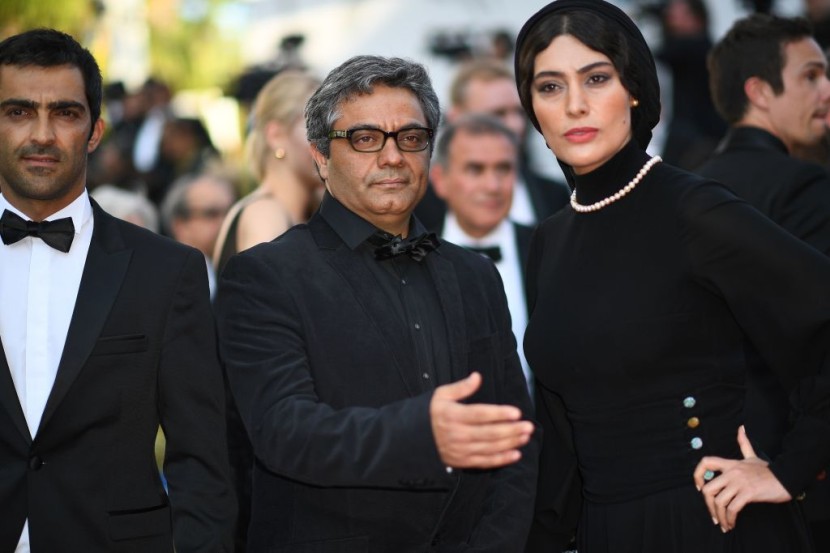
An award-winning Iranian movie director fled the Islamic republic after being sentenced to eight years in prison, flogging and confiscation of property amid a crackdown on dissent, according to a statement released Monday.
"I arrived in Europe a few days ago after a long and complicated journey," Mohammad Rasoulof, 51, said in the statement, according to the Associated Press.
Rasoulof's lawyer, Babak Paknia, said last week on X that Rasoulof was punished for "signing statements and making films and documentaries" that the court conisdered "collusion with the intention of committing a crime against the country's security."
Monday's revelation of Rasoulof's getaway came less than two weeks before his latest movie, "The Seed of the Sacred Fig," is set to premiere May 24 at the Cannes Film Festival in France.
Shortly before the statement was released, Cannes' artistic director Thierry Fremaux said the film was about "how insidiously the Iranian dictatorship creeps into families."
"Knowing that the news of my new film would be revealed very soon, I knew that without a doubt, a new sentence would be added to these eight years," Rasoulof said in his statement. "I didn't have much time to make a decision. I had to choose between prison and leaving Iran.
"With a heavy heart, I chose exile. The Islamic Republic confiscated my passport in September 2017. Therefore, I had to leave Iran secretly," he added.
It's unclear if Rasoulof plans to attend the film's premiere.
His 2020 film "There Is No Evil" won the Golden Bear prize for best picture at the Berlin Film Festival in 2020, but he couldn't be there to receive the award due to the travel ban imposed on him.
Iranian authorities haven't publicly acknowledged his sentence and there was no immediate comment on his exodus, AP said.
Rasoulof was among a group of artists who cosigned an open letter that urged Iranian authorities to put down their weapons during protests over a 2022 building collapse that killed at least 29 people in the southwestern city of Abadan, AP said.
His prison sentence marked the latest attempt to suppress criticism of Iran's hard-line religious government following years of mass protests, including over the 2022 death in police custody of Mahsa Amini after she was arrested for not properly wearing the mandatory head covering known as a hijab.









